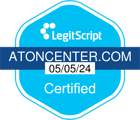
An individual making the transition from a life of addiction to recovery faces the task of reorganizing the method in which they live. The influence of addiction on a person’s life can result in a multi-faceted dysregulated experience. Being dysregulated has a wide range of influence on our experience. A person’s emotions can be unpredictable and rapidly changing. Strong emotion can swing from high to lows including problems with anger.
Our relationships grow intense and stressful with an ever present fear of being alone and abandoned. We don’t know where we fit in or who we are. A person can feel empty and easily bored. When a person is dysregulated, behavior can grow impulsive and reckless. A person can act without thinking of consequence. A person can feel disconnected. Thinking is cloudy. A person can develop an experience of numbness and shut down.
Mending this dysregulated experience is greatly supported with the right environment and treatment. The first 30 days of an individual’s sobriety can set the foundation for long lasting sobriety. Essential elements in early treatment will tend to emotions, thinking, relationships, and development of a new self-identity.
Education about therapeutic tools and skills can aid an individual toward mindfully managing difficult emotions. The adjustment in one’s thinking can result in a new trend of effective behaviors. A sober support system is developed from day one. An individual can learn new ways of engaging relationships based on respect. These skills can be applied with friends and family during your healing process.
Community is a priority to combat feeling alone, numb, and disconnected. Overcoming the dysregulation in one’s life exacerbated by addiction involves the entire individuals experience. Treatment should include safety, empathy, and intentionality of treatment determined to care for each unique person in a holistic fashion.
E. Matt Van Dusen PsyD LMFT LAADC
AToN Center 888-535-1516
Originally posted on September 15, 2017 @ 2:12 am

















